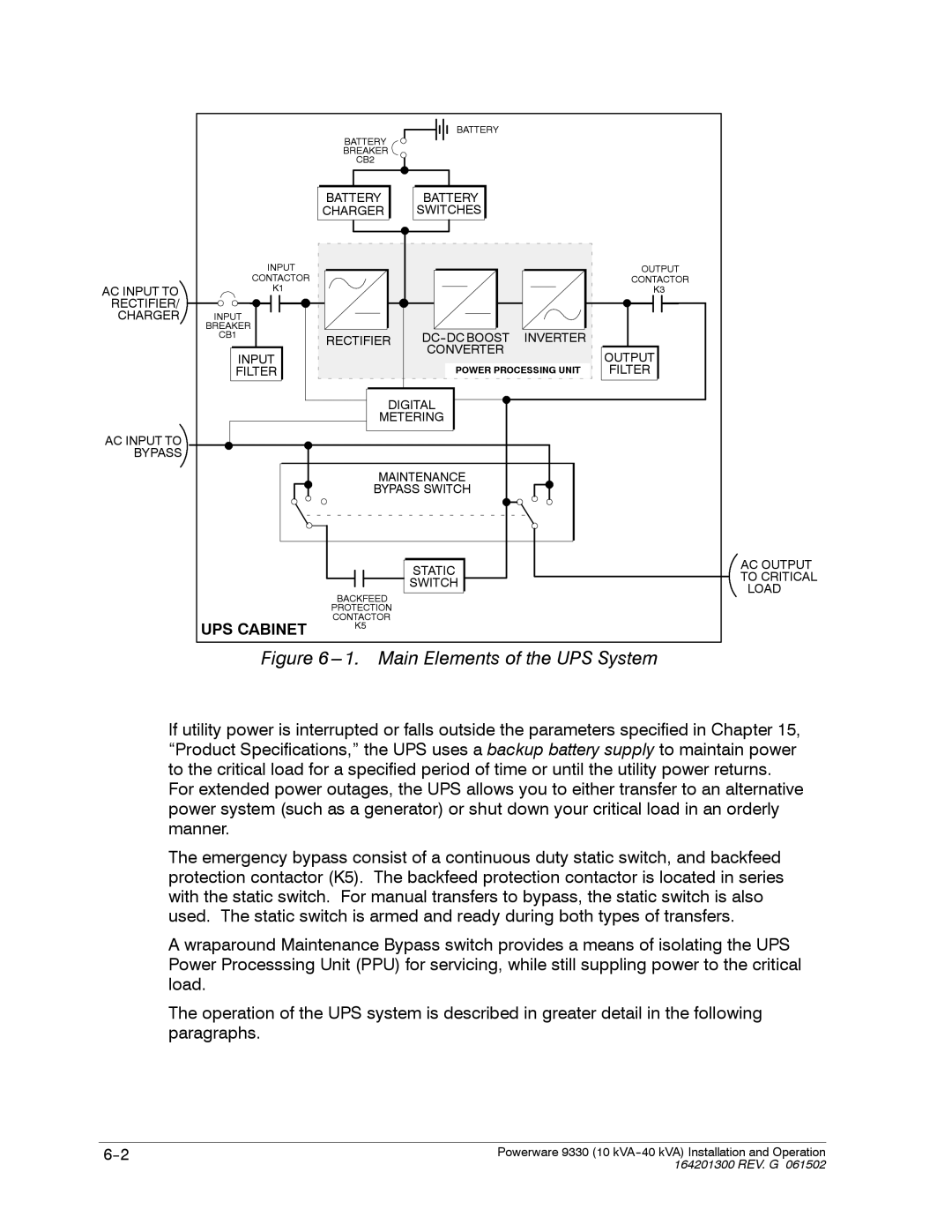
BATTERY
BATTERY
BREAKER
CB2
|
|
|
|
|
BATTERY |
| BATTERY | ||
CHARGER |
| SWITCHES | ||
|
|
|
|
|
AC INPUT TO RECTIFIER/ CHARGER
AC INPUT TO BYPASS
INPUT |
|
|
CONTACTOR |
|
|
K1 |
|
|
INPUT |
|
|
BREAKER |
|
|
CB1 | RECTIFIER | |
| ||
INPUT |
| CONVERTER |
|
| |
FILTER |
| POWER PROCESSING UNIT |
| DIGITAL | |
| METERING | |
OUTPUT
CONTACTOR
K3
OUTPUT |
FILTER |
MAINTENANCE
BYPASS SWITCH
STATIC
SWITCH
BACKFEED
PROTECTION
UPS CABINET | CONTACTOR | |
K5 | ||
|
Figure 6 ---1. Main Elements of the UPS System
AC OUTPUT TO CRITICAL LOAD
If utility power is interrupted or falls outside the parameters specified in Chapter 15, “Product Specifications,” the UPS uses a backup battery supply to maintain power to the critical load for a specified period of time or until the utility power returns.
For extended power outages, the UPS allows you to either transfer to an alternative power system (such as a generator) or shut down your critical load in an orderly manner.
The emergency bypass consist of a continuous duty static switch, and backfeed protection contactor (K5). The backfeed protection contactor is located in series with the static switch. For manual transfers to bypass, the static switch is also used. The static switch is armed and ready during both types of transfers.
A wraparound Maintenance Bypass switch provides a means of isolating the UPS Power Processsing Unit (PPU) for servicing, while still suppling power to the critical load.
The operation of the UPS system is described in greater detail in the following paragraphs.
Powerware 9330 (10 | |
| 164201300 REV. G 061502 |
